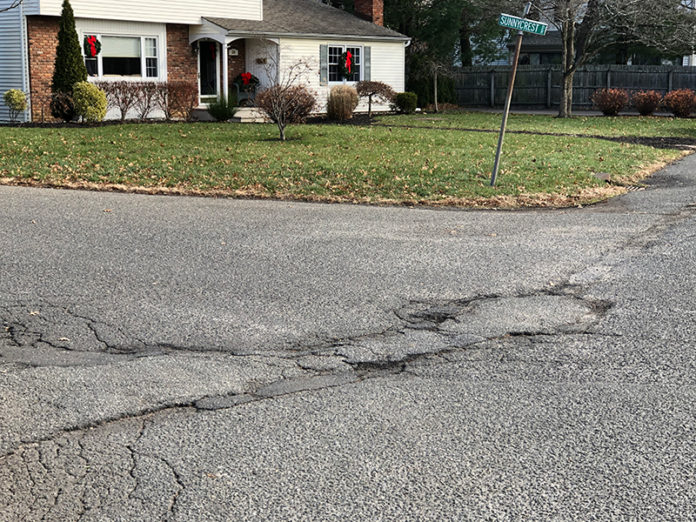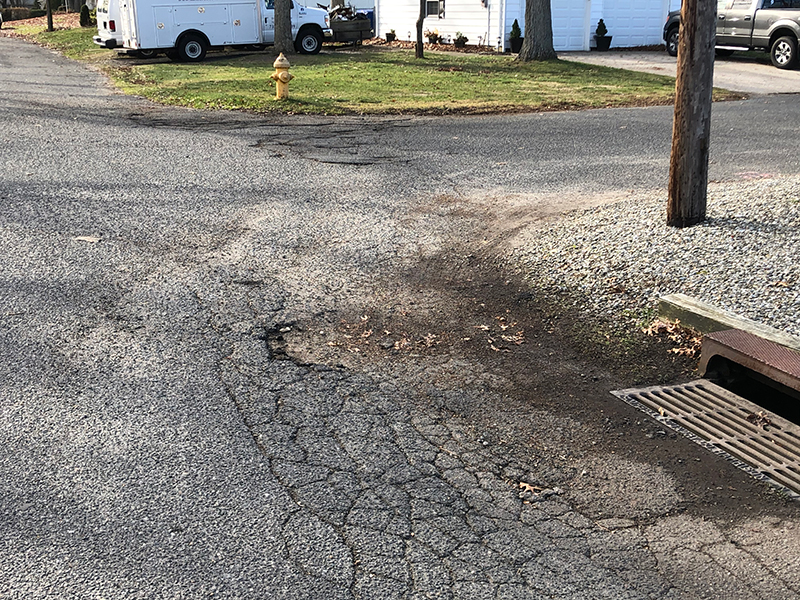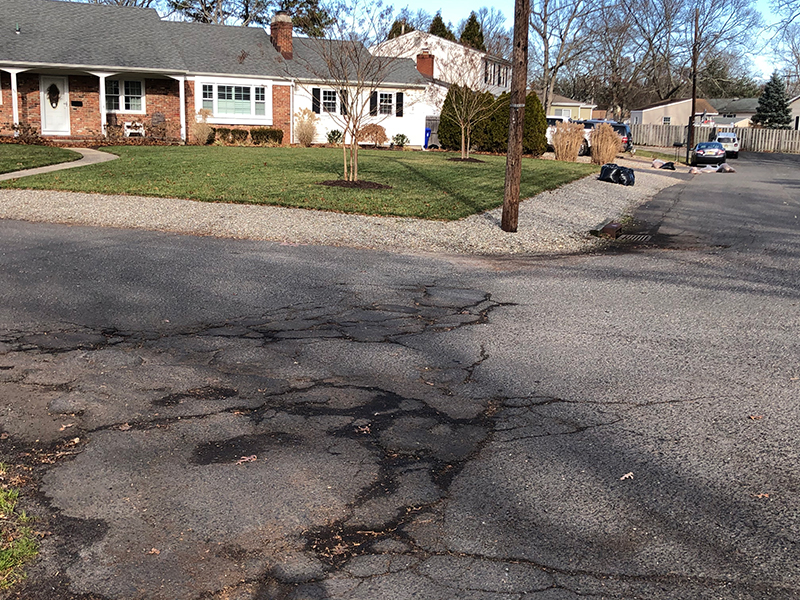
BRICK – The roads in the Laurelhurst section of town, located off Princeton Avenue, were paved in phases, often after the homes were sporadically built between the 1940s-1980s, so paving conditions vary throughout the area.
While miscellaneous roadway improvements have been done in Laurelhurst, the surface course is in excess of 20 years old and has experienced extreme wear, in addition to settlement associated with utility trenches, said Township Engineer Elissa Commins, and all the roads are in need of infrastructure improvements.
The estimated cost for the Laurelhurst Road Improvement Project is over $1.5 million, and with no funding source identified, the township applied for a 2019 New Jersey Department of Transportation (NJDOT) Municipal Aid grant for the full amount to complete the entire development.
The NJDOT awarded $367,755 for the project, so the township engineering department assessed the roads and broke the development into phases to be completed on a “worst-is-first” basis, Commins said.

Phase 1 would include Salem Road, Glenmere Drive, Sunnycrest Drive, Forest Drive and Laurelwood Road. Laurelhurst Drive might be added if funding allows, she said.
The township applied for additional 2020 NJDOT Municipal Aid grant funding to develop a Phase 2 construction plan for Laurelhurst Drive, Robbins Street, Robbins Court, Diane Drive and Edgewood Drive. The NJDOT awarded the township an additional $389,990 for the project.
“Both of these grants are reimbursement-based, so Brick still has to fund the project through its capital improvement program and seek reimbursement after we pay a contractor,” Commins said.
“How much we can accomplish in each phase is directly proportional to funding. If we can get more streets completed in Phase 1 we would bump up streets from Phase 2 and 3 accordingly,” she said.
There was no construction money in the municipal 2018 or 2019 budget for these projects, Commins said. After the township was notified of the $367,775 grant, the engineering department developed construction plans for Phase 1, which are about 75 percent complete.
“I was already planning to request money for construction of Phase 1 in the 2020 capital budget, for which we will be reimbursed,” Commins aid.
Since the grant agreement is in place, and since the design has advanced thus far without any notifications from utility companies about conflicting work, it is likely that Laurelhurst Phase 1 would be funded this year, she added.
With the notification of the additional $389,990 award, Commins said she would be requesting money for the development and construction of Phase 2 plans in the 2020 capital budget.
“I think we could save money and effort by combining the two [phases]; however there is no guarantee that we will also be able to fund Phase 2 this year,” she said. “We haven’t received the grant agreement from the DOT yet, only the notice of award.”
The township has not started the design or notified any of the utility companies that the additional roads are being considered for paving, so funding it for construction this year may seem premature, especially when there are limited capital funds and so many other paving projects that are already partially designed in the township queue, Commins added.
The proposed work will include a combination of mill and overlay and reconstruction, based upon asphalt coring results.
The proposed work also includes soil erosion and sediment control measures, construction of curbing at existing drainage facilitates to direct stormwater runoff, and handicap ramps as required.

Also, the reconstruction includes (New Jersey Department of Environmental Protection) mandated stormwater management compliance, traffic control, milling of the surface, retrofitting of all drainage, castings, resetting of utilities, pavement excavation and repair as needed, a two-inch overlay with a hot mix asphalt course, sign repair/replacement as needed, restriping and site restoration, Commins wrote.
The Municipal Aid program is a competitive program intended to provide municipalities with transportation-based grants to supplement their transportation programs.
Starting in fiscal year 2018, the Transportation Trust Fund earmarked some $400 million in state aid to municipalities and counties for local transportation improvements.






